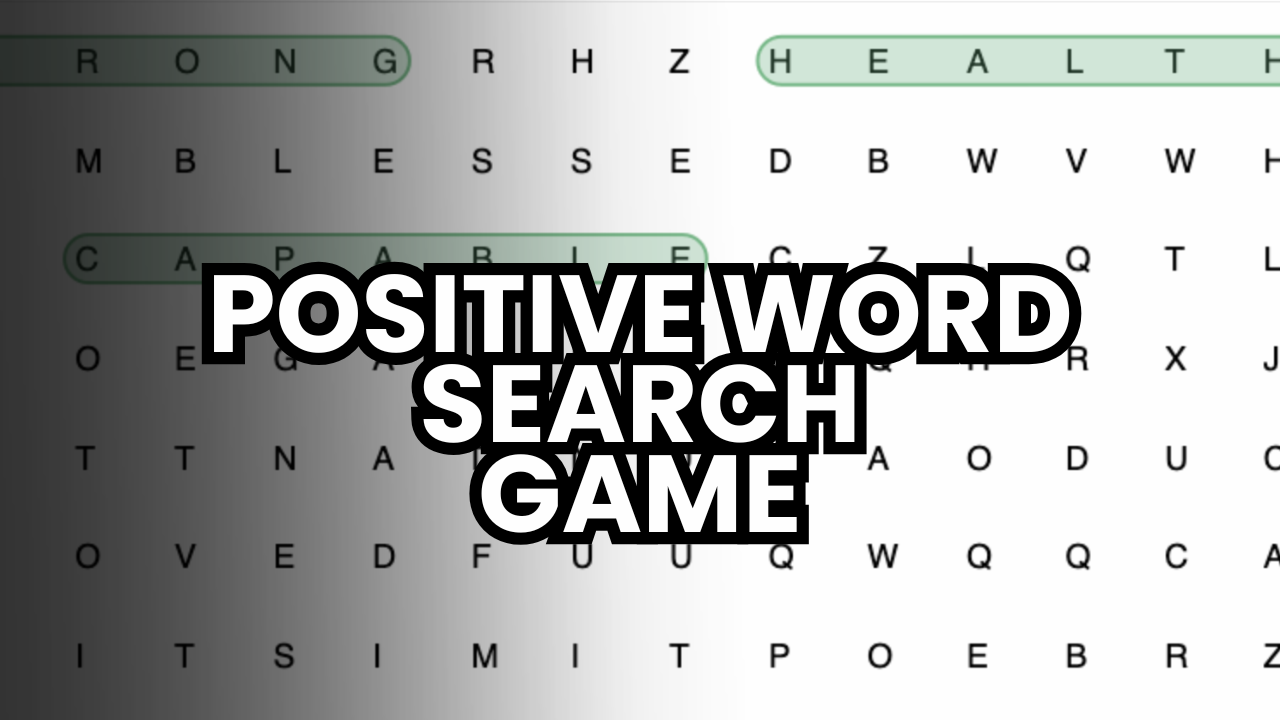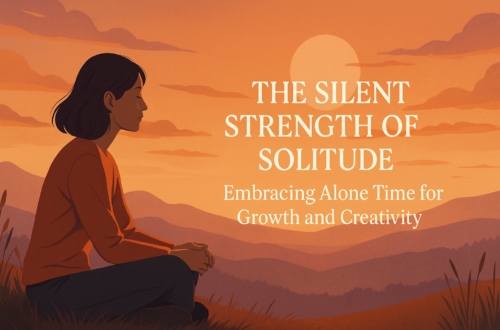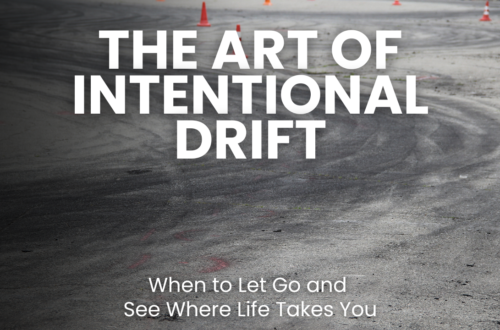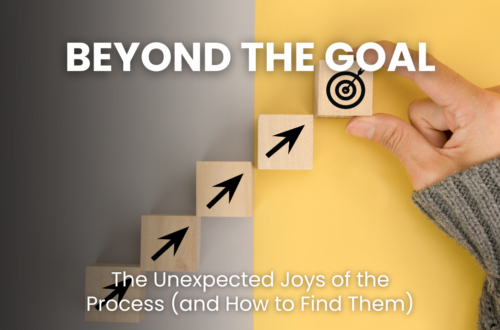Introduction: When Did We Stop Playing?
Remember the unbridled joy of childhood play? The way hours would vanish as you built imaginary worlds, chased friends through sun-drenched fields, or lost yourself in a fantastical story? For many of us, as we stepped into adulthood, the vibrant colors of play seemed to fade, replaced by the monochromatic demands of responsibility. Work, bills, errands, commitments – these became the new architects of our days, leaving little room for the seemingly frivolous pursuit of fun.
But what if that “frivolous pursuit” was actually a vital nutrient for our adult souls? What if the absence of play was contributing to our stress, stifling our creativity, and diminishing our overall sense of well-being? This extensive blog post will delve deep into the transformative power of play, exploring why it’s not just for children, but a fundamental human need that can profoundly enrich our adult lives. We’ll uncover its scientific benefits, address the common barriers that prevent us from playing, and, most importantly, provide actionable strategies to reintroduce fun and spontaneity back into your daily existence. Get ready to rediscover the boundless potential of play and unlock a more joyful, creative, and resilient you.

Section 1: The Science of Fun – Why Play Isn’t Just Child’s Play
To truly appreciate the power of play, we must first understand its profound impact on our brains and bodies. Far from being an indulgent pastime, play is a biological imperative, hardwired into our very being.
1.1 The Brain on Play: A Symphony of Benefits
When we engage in playful activities, our brains light up in remarkable ways.
- Neuroplasticity and Learning: Play is a powerful catalyst for neuroplasticity – the brain’s ability to reorganize itself by forming new neural connections. When we experiment, explore, and engage in novel situations during play, we’re essentially exercising our brains, making them more adaptable and efficient. This enhanced flexibility translates directly into improved learning and problem-solving abilities in all areas of life. Consider how a child learns through imaginative play, mimicking adult roles or solving intricate puzzles. Adults can harness this same mechanism for learning new skills, adapting to change, and even mastering complex concepts.
- Dopamine and the Reward System: Play triggers the release of dopamine, a neurotransmitter associated with pleasure, motivation, and reward. This creates a positive feedback loop, encouraging us to seek out more playful experiences. The “feel-good” sensation we get from playing isn’t just fleeting; it builds a reservoir of positive emotions that can combat negative feelings and boost our overall mood. This dopamine hit is crucial for fostering intrinsic motivation – the desire to do things for their own sake, rather than for external rewards.
- Prefrontal Cortex Activation: Activities that require strategic thinking, planning, and decision-making, often found in games and puzzles, activate the prefrontal cortex. This area of the brain is responsible for executive functions, including working memory, cognitive flexibility, and impulse control. Regular engagement in playful activities can sharpen these critical cognitive skills, enhancing our ability to focus, manage tasks, and make sound judgments in our professional and personal lives.
- Stress Reduction and Cortisol Regulation: One of the most significant benefits of play is its ability to act as a potent antidote to stress. When we play, our bodies release endorphins, natural painkillers and mood elevators that counteract the effects of stress hormones like cortisol. Chronic stress can have devastating effects on our physical and mental health, from impaired immune function to increased anxiety and depression. Play offers a natural, enjoyable way to mitigate these risks, allowing our bodies and minds to relax and reset.
- Enhanced Creativity and Divergent Thinking: Play provides a safe space for experimentation, risk-taking, and unconventional thinking. When we’re not constrained by the fear of failure or the pressure to produce a specific outcome, our minds are free to wander, connect disparate ideas, and generate novel solutions. This “divergent thinking” is the hallmark of creativity, allowing us to approach challenges with fresh perspectives and innovate in all aspects of our lives, from brainstorming new business ideas to finding creative solutions for household problems.
- Emotional Regulation and Resilience: Play allows us to explore and express emotions in a low-stakes environment. Whether it’s the thrill of competition, the frustration of a challenge, or the joy of collaboration, play provides a safe outlet for emotional processing. This practice in emotional regulation builds resilience, enabling us to better cope with setbacks and bounce back from adversity in the real world.
1.2 The Body on Play: More Than Just a Workout
While many forms of play are physically active, even sedentary play has positive physiological impacts.
- Physical Activity and Health: Clearly, active play like sports, dancing, or simply running around offers undeniable physical benefits – improved cardiovascular health, increased strength and flexibility, weight management, and enhanced coordination. However, even less strenuous forms of play, such as board games or crafting, can indirectly contribute to physical well-being by reducing stress, which in turn lowers blood pressure and boosts the immune system.
- Reduced Inflammation: Chronic stress is linked to increased inflammation in the body, a precursor to many chronic diseases. By reducing stress, play can indirectly contribute to lower inflammation levels, promoting overall physical health.
- Improved Sleep Quality: Engaging in playful activities, particularly those that involve physical exertion, can lead to better sleep quality. The reduction in stress and release of energy through play helps regulate the body’s natural sleep-wake cycle, fostering deeper, more restorative rest.
1.3 The Social Fabric of Play: Connection and Empathy
Humans are inherently social creatures, and play is a fundamental mechanism for fostering connection.
- Building Social Bonds: Shared playful experiences create a sense of camaraderie, strengthen relationships, and foster empathy. Whether it’s team sports, cooperative board games, or simply sharing a laugh, play dissolves barriers and encourages genuine human connection. This is particularly vital in adulthood, where social circles can often shrink due to busy schedules and increasing responsibilities.
- Communication Skills: Play often involves negotiation, compromise, and clear communication. From setting rules in a game to coordinating efforts in a team activity, play provides a natural training ground for developing effective interpersonal communication skills, crucial for both personal and professional success.
- Empathy and Perspective-Taking: Through role-playing, imaginative scenarios, and collaborative games, individuals learn to step into others’ shoes, understand different perspectives, and develop empathy. This ability to see the world from another’s viewpoint is essential for building strong relationships and navigating complex social dynamics.
- Conflict Resolution: In group play, disagreements inevitably arise. Navigating these conflicts in a playful context – such as negotiating rules or resolving disputes in a game – provides valuable practice in conflict resolution strategies that can be applied to real-life situations.
Section 2: The Silent Saboteurs – Why Adults Stop Playing

Despite the overwhelming evidence of play’s benefits, many adults find it incredibly challenging to incorporate it into their lives. What are the common barriers that stand in our way?
2.1 The Tyranny of Busyness: “No Time for That!”
In our fast-paced, productivity-obsessed culture, busyness has become a badge of honor. We equate our worth with our packed schedules and endless to-do lists.
- Time Scarcity Mindset: We genuinely believe we don’t have enough time. Our calendars are filled with work meetings, family obligations, chores, and essential appointments, leaving no apparent white space for “unproductive” activities like play. This mindset often overlooks the potential for play to make us more efficient and less stressed in the long run.
- Prioritization of “Serious” Tasks: Play is often relegated to the bottom of the priority list, seen as a luxury rather than a necessity. We prioritize tasks that have immediate, tangible outcomes (e.g., finishing a report, cleaning the house) over activities that offer less obvious, but equally vital, long-term benefits (e.g., creative expression, stress relief).
2.2 The Weight of Adulting: “It’s Not Professional/Mature”
Society often sends subtle and not-so-subtle messages that play is for children, and adults should be serious, responsible, and composed.
- Fear of Judgment and Looking Foolish: We worry about what others might think if we act silly, laugh loudly, or engage in seemingly childish activities. The fear of being perceived as immature or unprofessional can be a powerful deterrent.
- Internalized Messages: Many of us have internalized messages from childhood or early adulthood that “grown-ups don’t play” or that “fun is a distraction.” These deeply ingrained beliefs can make us feel guilty or even ashamed when we contemplate engaging in playful activities.
- Loss of Spontaneity: The structured nature of adult life often erodes our capacity for spontaneity. We plan everything, from our meals to our social engagements, leaving little room for impulsive, joyful moments.
2.3 The Productivity Trap: “What’s the Point?”
In a world that values measurable outcomes, play can seem purposeless and therefore, unproductive.
- Need for Tangible Outcomes: We’re conditioned to seek tangible results from our efforts. If an activity doesn’t lead to a promotion, a clean house, or a completed project, we question its value. Play, by its very nature, is often about the process, not the product.
- Pressure to Be Productive: The constant pressure to optimize, maximize, and produce can make us feel guilty about engaging in activities that don’t directly contribute to a perceived goal. This “productivity guilt” can effectively suffocate any inclination to play.
- Fear of Failure/Perfectionism: When we play, especially new forms of play, there’s always the possibility of not being good at it. For those with strong perfectionist tendencies, the fear of not excelling can lead to avoidance, even of enjoyable activities.
2.4 Digital Distractions and Passive Consumption: The Comfort Zone
The rise of digital entertainment has provided easy, passive alternatives to active play, often leading us down a path of less engagement.
- Screen Time Over Active Play: Spending hours passively scrolling through social media, binge-watching TV shows, or playing video games can be a comfortable default, requiring less effort and social interaction than active forms of play. While these activities can be relaxing, they often lack the same cognitive and emotional benefits as more interactive and creative forms of play.
- Reduced Opportunities for Spontaneous Interaction: Over-reliance on digital communication can limit face-to-face interactions, which are often the breeding ground for spontaneous play and connection.
- The Illusion of Connection: Social media can create an illusion of connection, but it often lacks the depth and authenticity of in-person interactions, which are crucial for the kind of playful bonding that genuinely reduces stress and fosters well-being.
Section 3: Reclaiming Your Playfulness – Practical Strategies for Adults

Now that we understand the “why” and the “what’s stopping us,” it’s time to delve into the “how.” Reintroducing play into your adult life doesn’t require a radical overhaul; it’s about small, consistent steps and a shift in mindset.
3.1 Shifting Your Mindset: The Foundation of Playful Living
Before you even pick up a board game or join a sports league, cultivate a new perspective on play.
- Challenge Your Assumptions: Actively question the beliefs you hold about play. Is it truly unproductive? Is it really only for children? Remind yourself of the scientific benefits and the universal human need for joy and connection.
- Prioritize Play: Consciously elevate play on your list of priorities. Just as you schedule work meetings or doctor’s appointments, schedule time for play. Make it non-negotiable.
- Embrace Imperfection and Process Over Product: Let go of the need for perfection or tangible outcomes. The goal of play is the experience itself, the joy of engagement, the release of tension. It’s about the journey, not the destination.
- Give Yourself Permission to Be Silly: Release the fear of judgment. Who cares if you look a little goofy? The liberation that comes from embracing your playful side far outweighs any fleeting embarrassment.
- Practice Self-Compassion: If you find yourself struggling to embrace play, be kind to yourself. It’s a learned behavior, and it takes time to rewire old patterns. Celebrate small victories and don’t get discouraged by setbacks.
3.2 Integrating Play into Your Daily Routine: Small Doses, Big Impact
You don’t need dedicated hours for play. Look for opportunities to inject fun into your existing routines.
- Micro-Moments of Play:
- Listen to music and dance spontaneously: Even a few minutes of uncontrolled movement can be incredibly liberating.
- Sing in the shower or car: Let loose and enjoy the simple act of making sound.
- Doodle during meetings or phone calls: Allow your mind to wander creatively.
- Tell a silly joke or play a quick prank (harmlessly, of course!): Inject humor into your interactions.
- Engage in playful banter with colleagues or friends: Lighten the mood and build rapport.
- Take a different route to work or try a new coffee shop: Break routine and introduce novelty.
- Gaze at the clouds and find shapes: Reconnect with your imagination.
- Gamify Everyday Tasks:
- Turn chores into a game: Race against the clock, listen to a fun playlist, or reward yourself afterwards.
- Challenge yourself to learn something new each day: A new word, a fact, a simple skill.
- Set small, fun goals for your day: “Today, I will smile at five strangers.”
- Embrace Your Inner Child:
- Revisit childhood hobbies: Did you love to draw, build with LEGOs, or play with dolls? See if those interests still spark joy.
- Watch a beloved animated movie or read a favorite children’s book: Connect with the innocence and wonder of childhood.
- Go to a playground and swing on the swings (if appropriate and safe!): Experience the simple thrill of movement.
- Blow bubbles, fly a kite, or splash in puddles: Reconnect with simple, sensory pleasures.
3.3 Structured Play: Dedicated Time for Fun
While micro-moments are great, carve out dedicated time for more immersive playful experiences.
- Schedule Play Dates: Just like you schedule work, schedule time for play. Put it in your calendar and treat it with the same importance as any other appointment.
- Join a Class or Group:
- Adult sports leagues: Kickball, softball, volleyball – a fantastic way to combine physical activity, social connection, and playful competition.
- Improv classes: Perfect for embracing spontaneity, quick thinking, and laughter.
- Dance classes: From salsa to hip-hop, dancing is a joyful way to move your body and express yourself.
- Art classes: Pottery, painting, drawing – unleash your creativity without the pressure of perfection.
- Board game nights/Clubs: A wonderful way to connect with others and engage in strategic, fun challenges.
- Book clubs focused on humorous or lighthearted reads: Explore stories that spark joy and laughter.
- Explore New Hobbies:
- Learn a musical instrument: The process of learning, even with its challenges, can be incredibly rewarding and playful.
- Try photography: See the world through a new lens and capture moments of beauty and humor.
- Gardening: Connecting with nature and nurturing life can be a deeply satisfying and playful pursuit.
- Cooking/Baking for fun: Experiment with new recipes, decorate elaborate cakes, or simply enjoy the process of creating delicious food without pressure.
- Embrace Games:
- Board games and card games: Excellent for strategic thinking, social interaction, and friendly competition.
- Video games: Many video games offer immersive worlds, problem-solving challenges, and opportunities for social connection. Choose games that spark joy and not just addiction.
- Outdoor games: Frisbee, cornhole, giant Jenga – perfect for getting outside and enjoying fresh air.
- Incorporate Spontaneity:
- Say “yes” more often: If an unexpected opportunity for fun arises, seize it!
- Plan a “no-plan” day: Dedicate a day to doing whatever feels right in the moment, without a fixed agenda.
- Take a spontaneous road trip: Even a short one can be exhilarating.
- Surprise a friend with a playful gesture: Leave a funny note, bring them a silly gift.
3.4 The Power of Play Partners: Connecting Through Fun
Play is often more enjoyable and sustainable when shared with others.
- Designate a Play Buddy: Find a friend, partner, or family member who is also interested in incorporating more play into their lives. Hold each other accountable and brainstorm ideas together.
- Organize Group Play Activities: Host game nights, plan themed parties, or organize outdoor adventures.
- Incorporate Play into Family Life: If you have children, let them be your guides! Join in their games, build forts, or have tickle fights. Their natural playfulness can be incredibly infectious.
- Collaborate on Creative Projects: Start a band, write a story together, or create a piece of art with friends.
3.5 Mindful Play: Maximizing the Benefits
To truly harness the power of play, engage with intention and presence.
- Be Present: When you’re playing, fully immerse yourself in the moment. Put away distractions, silence your phone, and focus on the activity itself.
- Pay Attention to Your Feelings: Notice the joy, laughter, and relaxation that play brings. Acknowledge these positive emotions.
- Reflect on the Experience: After playing, take a moment to reflect on how it made you feel. What insights did you gain? How did it impact your mood or energy levels? This reflection reinforces the value of play.
- Don’t Overthink It: The essence of play is often its unselfconscious nature. Don’t analyze it too much; just let yourself be.
Section 4: The Ripple Effect – How Play Transforms Your Entire Life

Reintroducing play isn’t just about having more fun; it creates a positive ripple effect that touches every aspect of your existence.
4.1 Enhanced Productivity and Innovation at Work
It may seem counterintuitive, but more play can actually lead to better work.
- Improved Focus and Concentration: Regular breaks for playful activities can reset your brain, leading to increased focus and concentration when you return to your tasks.
- Reduced Burnout: Play acts as a powerful buffer against burnout. By providing an outlet for stress and a source of joy, it helps you recharge and maintain enthusiasm for your work.
- Creative Problem Solving: As discussed earlier, play fosters divergent thinking, enabling you to approach work challenges with fresh perspectives and generate innovative solutions that might otherwise remain hidden. Companies like Google and Pixar famously encourage play and creativity, recognizing its link to groundbreaking innovation.
- Better Team Dynamics: Playful interactions among colleagues can build stronger team bonds, improve communication, and foster a more positive and collaborative work environment.
4.2 Stronger Relationships and Deeper Connections
Play is a universal language that transcends age, background, and differences.
- Increased Empathy and Understanding: Shared playful experiences foster a deeper understanding of others’ personalities, quirks, and communication styles.
- Shared Laughter and Joy: Laughter is a powerful bonding agent. Play provides ample opportunities for shared laughter, strengthening emotional connections and creating lasting positive memories.
- Conflict Resolution: Learning to navigate playful disagreements and compromises can translate into more effective conflict resolution in real-life relationships.
- Authentic Self-Expression: Play allows us to drop our adult masks and reveal our authentic selves, fostering deeper intimacy and trust in our relationships.
4.3 Improved Physical and Mental Health
The benefits extend far beyond immediate enjoyment.
- Reduced Risk of Chronic Diseases: By significantly reducing stress, play can lower blood pressure, improve cardiovascular health, and bolster the immune system, thereby reducing the risk of a myriad of stress-related chronic diseases.
- Enhanced Mood and Reduced Symptoms of Depression/Anxiety: The regular release of endorphins and dopamine through play acts as a natural antidepressant and anxiolytic, helping to regulate mood and alleviate symptoms of mental health conditions.
- Better Sleep: Play, especially active play, helps regulate circadian rhythms and reduce stress, leading to more restful and restorative sleep.
- Increased Resilience: By providing opportunities to practice coping with challenges and setbacks in a low-stakes environment, play builds emotional resilience, enabling you to bounce back more effectively from life’s inevitable difficulties.
4.4 A Richer, More Fulfilling Life
Ultimately, reintroducing play is about cultivating a life brimming with joy, meaning, and purpose.
- Increased Sense of Joy and Happiness: Play is intrinsically linked to joy. By actively seeking out and engaging in playful activities, you infuse your life with more moments of pure, unadulterated happiness.
- Greater Sense of Purpose and Meaning: When you feel more connected to your authentic self and experience regular moments of joy, you are more likely to feel a sense of purpose and meaning in your daily life.
- Enhanced Life Balance: Play helps to counteract the pressures of work and responsibility, creating a more balanced and sustainable lifestyle. It reminds us that life is not just about doing, but also about being, experiencing, and enjoying.
- Continued Adult Development and Growth: Play fuels curiosity, exploration, and learning, ensuring that you continue to grow and evolve throughout your adult life. It keeps your mind sharp and your spirit vibrant.
Conclusion: Your Invitation to Play
The notion that play is merely a childish diversion is a myth we must collectively dismantle. For adults, play is not a luxury; it is a fundamental human need, a powerful tool for enhancing creativity, alleviating stress, building stronger relationships, and fostering overall well-being. It is the secret ingredient to a life lived more fully, vibrantly, and joyfully.
The journey back to playfulness is a personal one, but it is accessible to everyone. Start small, be kind to yourself, and challenge the internalized beliefs that tell you “adults don’t play.” Embrace the silly, the spontaneous, and the seemingly unproductive. Whether it’s a quick dance party in your living room, a competitive board game with friends, or simply allowing yourself to get lost in a creative pursuit, every playful moment is an investment in your mental, emotional, and physical health.
So, go ahead. Give yourself permission to rediscover the profound and transformative power of play. The world needs your creativity, your resilience, and your joy. And it all begins when you decide to step back into the playground of life, one playful step at a time. What will you play today?
Enhance Your Journey with These Empowering Tools
As you embrace change and navigate life’s transitions with the help of affirmations, it’s important to equip yourself with tools that support your growth and well-being. From affirmation card decks to self-care essentials, the right products can help reinforce your positive mindset and create a nurturing environment for personal transformation.
Below are some carefully selected items that can complement your affirmation practice, making it easier to stay focused, resilient, and mindful throughout your journey :
- 30.48 cm 15-Note Steel Tongue Drum D Key Percussion Instrument Cornices Shape Handpan Drum With Drum Mallets Carry Bag And Music Book, Used For Music Education Concert Spiritual Healing Yoga Entertainment 👉 item link
- Messages of Life Inspiration Cards – 44-Card Deck with Guidebook for Positive Affirmations & Spiritual Growth, Durable Paper Material, Ideal for Ages 14 & Up – Motivational Oracle Card Game 👉 item link
- Deck of Emotions Playing Cards – 54 Card Set for Mental Health, Family Bonding, Party Fun – Christmas, Halloween, Easter, Hanukkah, Thanksgiving – Ideal Gift for Birthday, Aesthetic Home Decor – Paper Material, No Electricity Needed 👉 item link
- 1pc Self-Care English Cover Star Moon Multicolored Optional Record 5 Minutes A Day, For Learning Supplies, Notebook, Library, More Affirmations Reflections, Optimistic, Happy, Simple Undated Hardcover 👉 item link
- 3pcs Wooden Framed Canvas Poster, Modern Art, Inspirational Canvas Painting, Ideal Gift For Bedroom Living Room Corridor, Wall Art, Wall Decor, Winter Decor, Room Decoration 👉 item link









